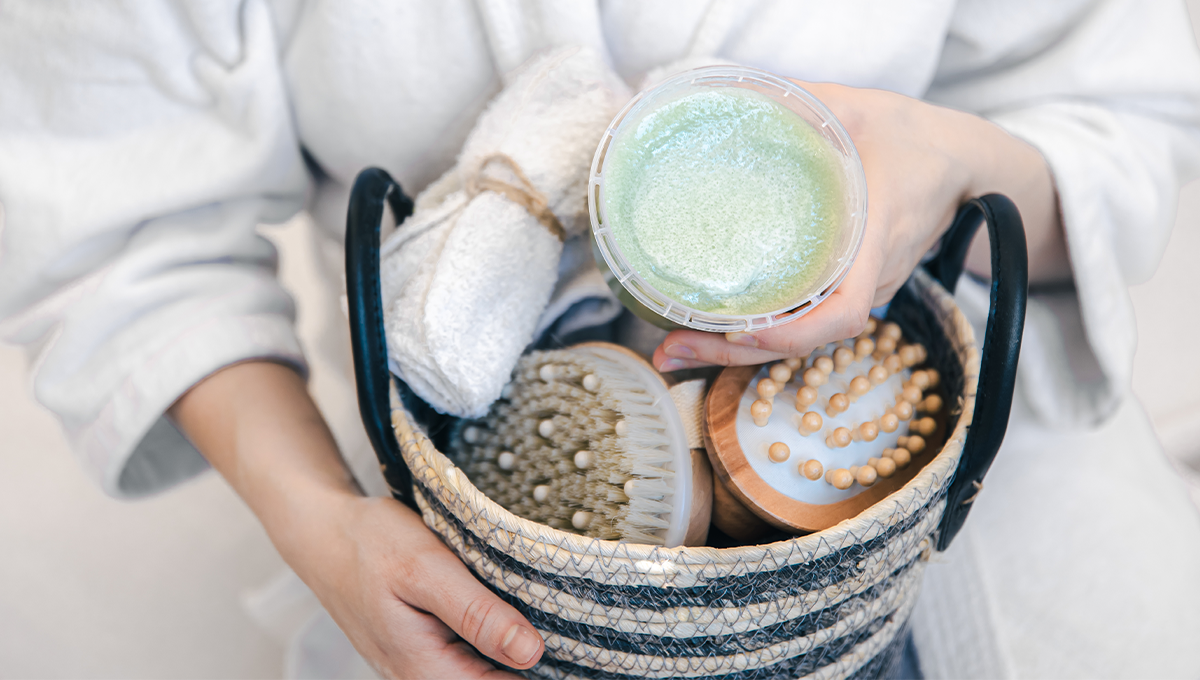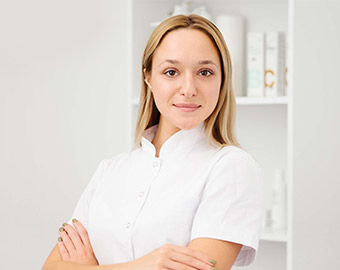 How to stop skin aging is a question we all ask ourselves at some point in life! Our skin ages due to a variety of factors - there are things we have no control over and things we do have.
How to stop skin aging is a question we all ask ourselves at some point in life! Our skin ages due to a variety of factors - there are things we have no control over and things we do have.
Everybody gets noticeable facial lines with time. Our faces naturally lose some of their youthful fullness as we age. We observe that our skin is getting drier and thinner.
Our genes mostly determine when these modifications take place. “Intrinsic aging” is the scientific term for this kind of aging, and it can’t be stopped entirely.
Lifestyle decisions and environmental factors also contribute to premature aging of the skin, but this can be slowed down. Medical professionals know this kind of aging as “extrinsic aging.” Hence, read on to find out how to avoid skin aging effectively.
The Top 10 Aging Accelerators
1. Lack of Sleep
Lack of concentration and memory is one of the numerous detrimental effects of sleep deprivation. Aging and skin function are impacted by sleep quality.
A lack of adequate sleep is linked to premature aging and a slower pace of recovery from external stresses such as UV radiation and disturbance of the skin barrier.
This demonstrates how prolonged sleep deprivation increases cortisol production, which can hasten the aging process. The most prevalent stress hormone, cortisol, breaks down collagen, causing wrinkles, drooping skin, and inflammation.
2. Alcohol Consumption
A 2019 study examined how alcohol affected the aging of 3,267 women from various racial origins’ faces. According to the study, excessive alcohol use was linked to a greater number of
● upper facial lines,
● swelling under the eyes,
● mouth wrinkles,
● volume loss in the midface,
● and shrinking blood vessels.
3. Consuming Tobacco
Early signs of aging result from smoking’s oxidative harm to the skin’s healing processes and inhibition of extracellular matrix turnover.
The American Society of Plastic Surgeons carried out a study involving 79 sets of twins. Compared to their nonsmoking counterparts, smoking twin siblings exhibited greater
● eyelid skin redundancy,
● lower eyelid bags,
● malar bags,
● nasolabial folds,
● lip line wrinkles,
● lower lip vermillion wrinkles,
● and jowls.
4. Not Using Sunscreen
Without protection, sun exposure can harm your skin in several ways. While UVA rays enter deeper and harm collagen production and elastic fibers, UVB rays can potentially cause burns. Wrinkles, skin cancer, and early aging are all possible outcomes of this injury.
Not all sunscreens are made equal, even though applying sunscreen can help you protect your skin from the sun. A sunscreen needs to have an SPF of at least 15 to be effective. The American Cancer Society states sunscreens with an:
● SPF of 15 block out 93% of UVB rays,
● SPFs with an SPF of 30 block 97%,
● SPF 50 block 88%,
● and SPF 100 blocks 99% of UVB rays.
5. Taking Off your Sunglasses
One of the best methods to shield your eyes from the damaging effects of sunshine is to wear sunglasses. The lenses’ blocking of UV rays harms the thin skin surrounding the eyes, resulting in wrinkles.
Furthermore, the glasses reduce eye strain by limiting the quantity of intense light that contacts the skin. Sunglasses assist in relaxing the eyes and delay the onset of wrinkles.
6. Makeup While Sleeping
Wearing makeup to bed is not a smart idea. Our skin renews and regenerates itself when we sleep. However, cosmetics might block our pores and prevent our skin from regenerating. Heavy, oil-based primers and foundations provide the greatest risk.
7. Improper Oral Hygiene
Several major skin issues can arise from poor dental hygiene. Once they start in your mouth, oral infections have the potential to spread throughout your body, including the blood flow.
Those with acne, in particular, could observe that as their gum disease worsens, their condition gets worse. This is because the same bacteria responsible for gum disease may cause outbreaks on the skin.
8. Using Straws
Cocktail straws made of plastic are not as harmless as they first seem. It should come as no surprise that many sizable coffee businesses reject them. In addition to harming the environment, plastic straws also promote the development of wrinkles around the mouth.
Our lips tense constantly when we are around straw-shaped drinks and clench weirdly. This type of muscle action leads to the breakdown of collagen fibers. This action leads to the development of fine lines and wrinkles.
9. Excessive Sugar Consumption
You should avoid refined sugar to protect your skin in particular. Sugars inhibit the easy repair of collagen fibers, which is essential for preserving the skin’s firmness.
The sugars most often consumed, fructose and glucose, combine with the skin’s protein to generate advanced glycation end-products (AGES).
AGES brings on wrinkles and hardening cell structures. Ultraviolet light speeds up this process. Dryer, duller, flabby skin susceptible to the sun is the outcome.
10. Not Applying Moisturizer
Although moisturizers have long been recommended as a great way to maintain healthy, youthful-looking skin, a new study indicates that they may also have an impact on skin aging.
Integrating Anti-Aging Solutions into Your Routine
You must use anti aging products in your skin care to prevent aging skin. Microcurrent facial machine integration is one very efficient solution. These gadgets stimulate facial muscles with low-level electrical currents, improving firmness and tone. Over time, regular application can help to reduce wrinkles and fine lines, giving the appearance of younger skin.
Another important step is to add vitamin C products to your routine. Collagen formation is known to be increased by vitamin C, which helps preserve skin elasticity and reduce the visibility of wrinkles. It also functions as a potent antioxidant, which shields the skin from harmful environmental elements such as pollution and UV rays.
However, without sufficient sun protection, no anti-ageing routine is complete. UV radiation is the main contributor to early aging, which results in wrinkles, drooping and age spots on skin. Using broad spectrum sunscreen with an SPF in your daily routine is essential to avoiding these consequences and preserving the health of your skin.
When it involves anti-ageing skincare, consistency is essential. Long-term effects are best achieved by establishing a daily routine with
● sunscreen,
● vitamin C products,
● microcurrent facial machine
● and an oxygen facial machine.
You can easily answer the question of how to prevent skin aging by prioritizing these items.
Conclusion
As you age, your body changes, which is a natural part of growing older. Your skin will droop and wrinkle, and your hair will naturally turn gray. Although there is no way to stop aging, there are strategies to delay the process and maintain your health. Eat nutritious food, exercise, reduce stress, get enough sleep, and wear sunscreen on your skin.
FAQs
1. Can skin aging be prevented?
Daily practices like maintaining a balanced diet and shielding your skin from the sun will significantly help in reverse skin aging.
2. What triggers skin aging?
The skin’s aging process is accelerated by ultraviolet radiation from the sun and other sources, particularly in those prone to sunburn. It degrades the skin’s collagen and elastin fibers. The skin becomes weaker and less flexible without these protective connective tissues. Pollution and smoking.
3. How to look younger at 30 naturally?
● Water consumption contributes to moisture retention in the skin, making it plumper, softer, and healthier.
● Hormone imbalances brought on by stress might age you.
● Using sunscreen with at least a 30 SPF rating can avoid dark spots, age spots, and fine wrinkles.
● Skin can be tightened and appear firmer and healthier with gentle upward movements.
● Regular moderate exercise, even for 30 minutes a day, will keep your muscles youthful and toned.
● Exfoliation fights dull-looking skin tone and encourages cell renewal.
● Skin type that has been moisturized seems far younger than skin that has been exposed to the elements for an extended period.
4. At what age does your face change most?
Around their 40s and 50s, most people notice an alteration in how their faces look; some people even see it in their 30s. But as we age, our faces also alter in appearance in addition to these physical changes.
5. What foods are anti-aging?
Cruciferous vegetables—broccoli, Brussels sprouts, kale, cauliflower, cabbage, and so on—are among the best anti-ageing foods because they contain a lot of indole-3-carbinol, which balances out excessive estrogen levels. The vitamins D and A in these vegetables shield the cells in your skin from UV radiation and photodamage.


